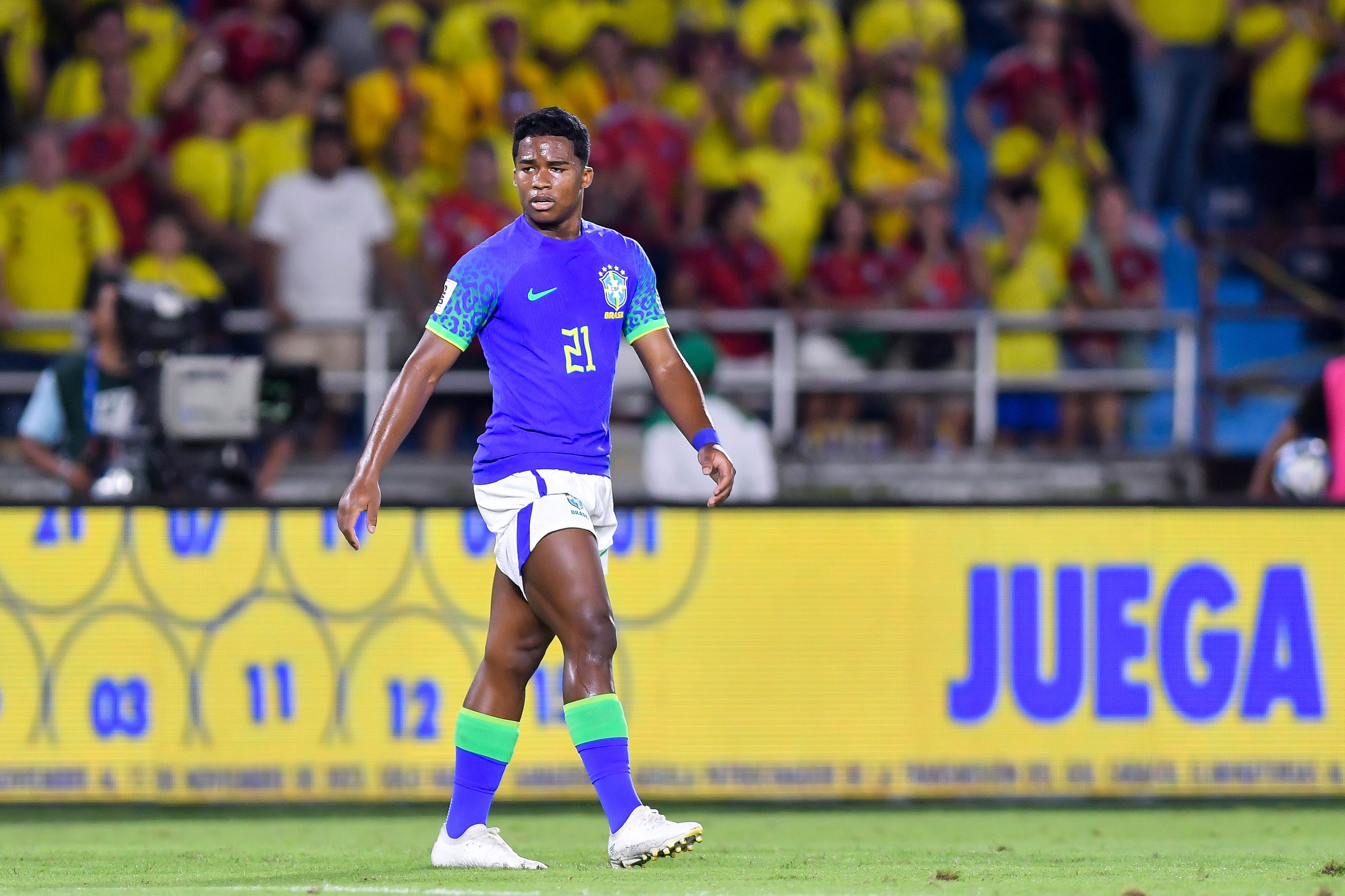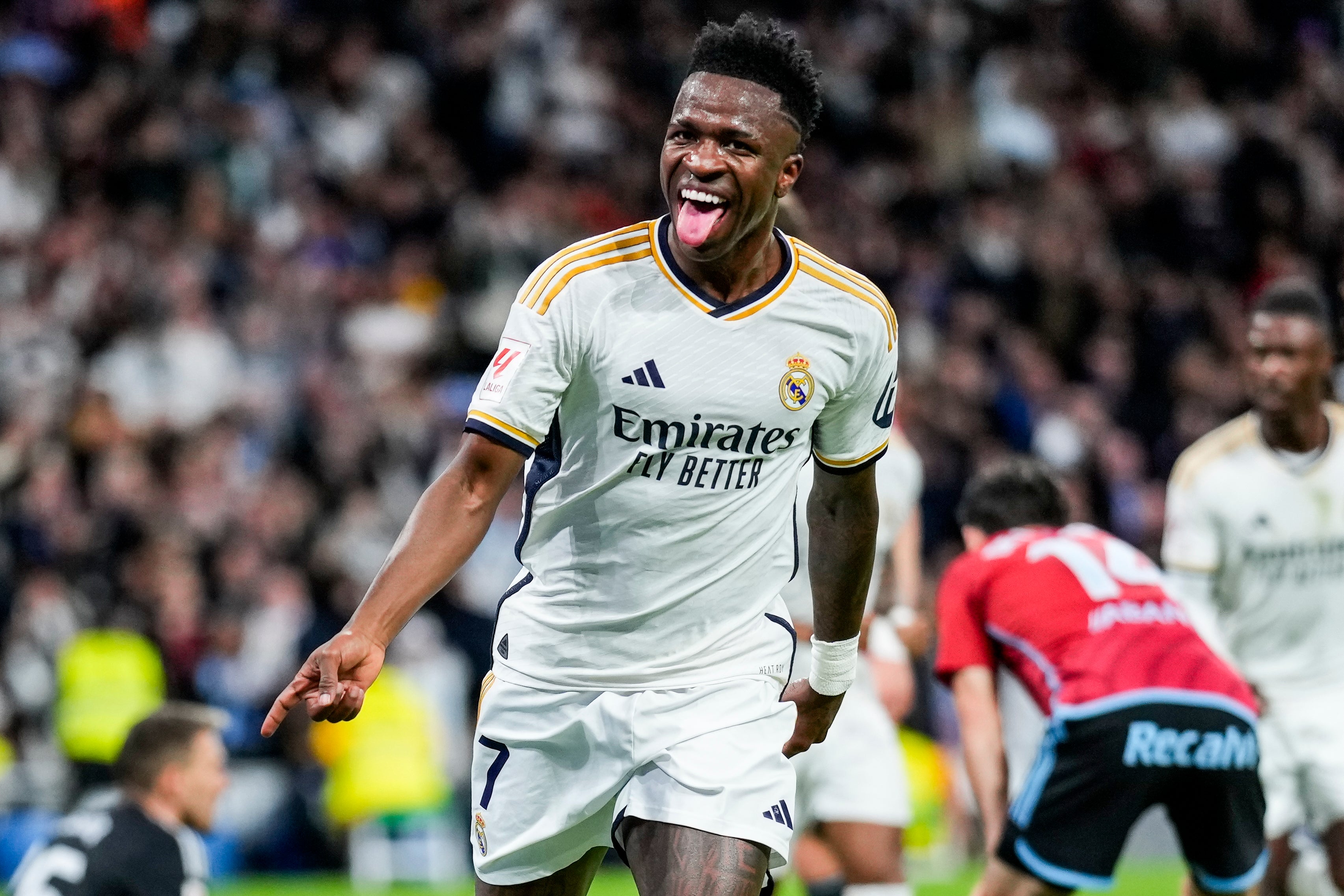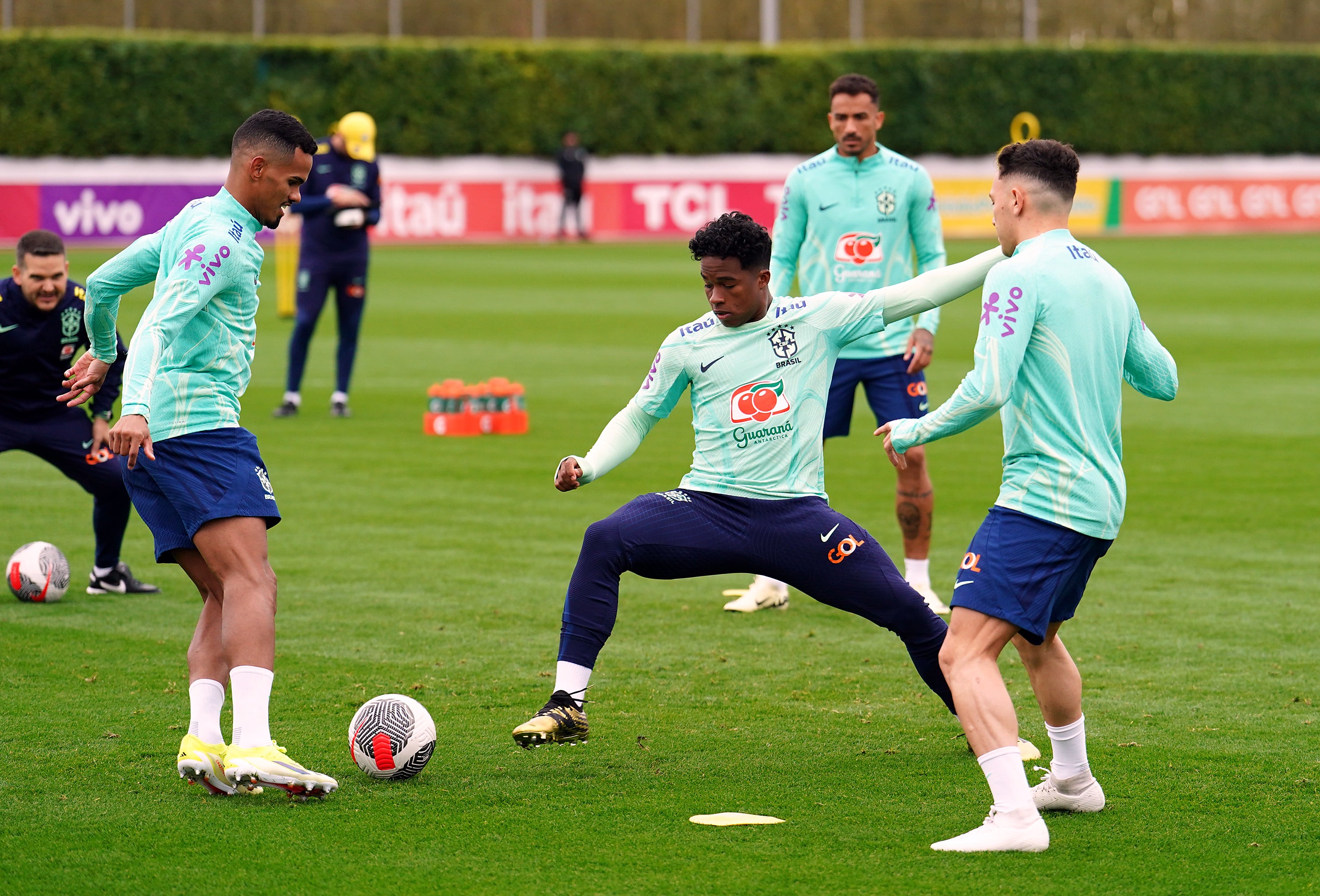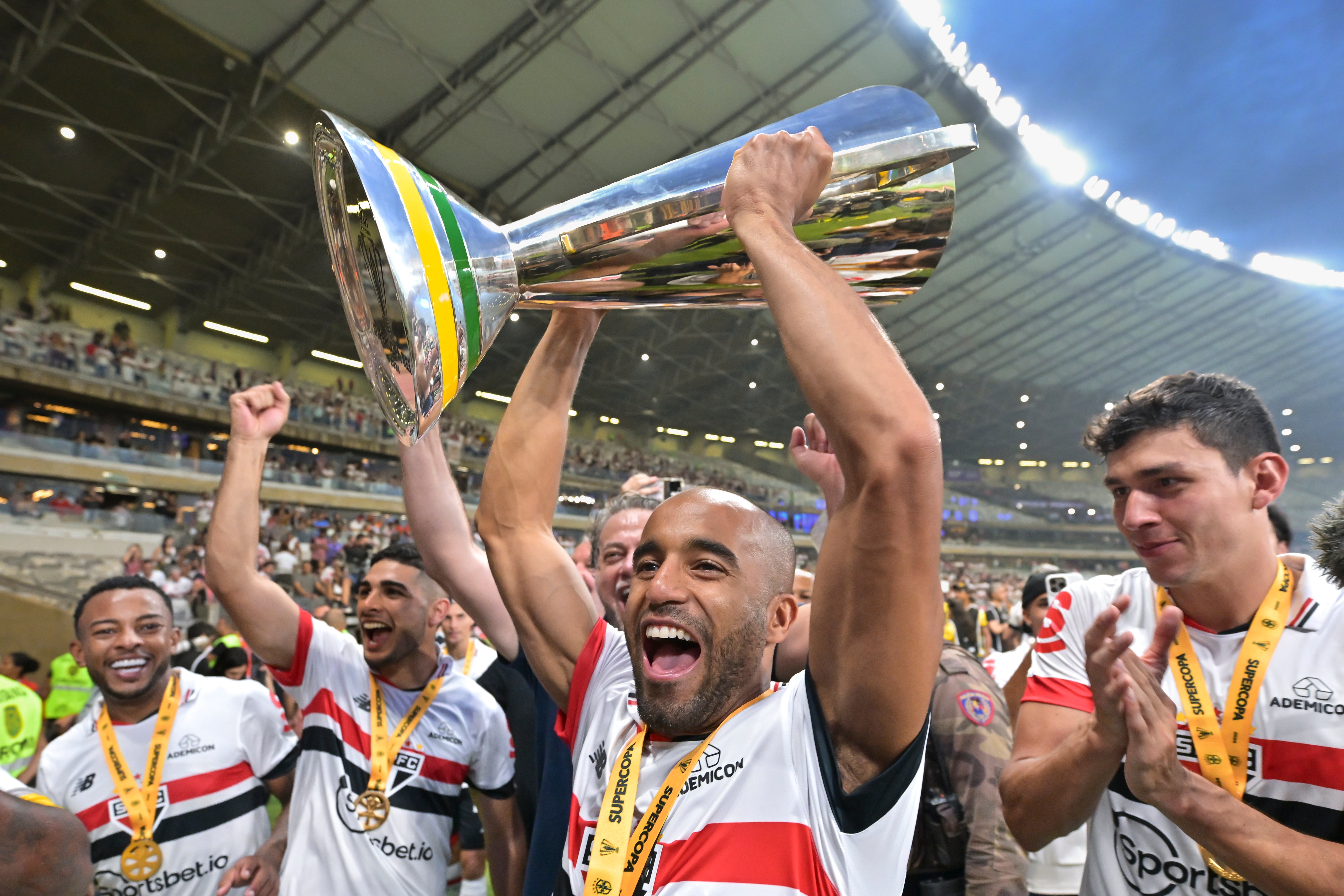Grow, sell, repeat: How Brazilian football is feeding Europe and the Premier League with young talent
The best young Brazilians are desperate to get to Europe where the career opportunities are life-changing, writes Lawrence Ostlere, and the Premier League is the ‘premier destination’


For any Brazilian teenager breaking into the first team of a big club such as Corinthians or Sao Paulo or Flamengo or Fluminense, there’s a good chance they’ve just earned themselves a lucrative ticket to European football. The five most expensive transfers in Brazil this season were all players sold to one of Europe’s major clubs, or Crystal Palace. Their average fee, according to Transfermarkt, was £20m. Their average age was just 19.
Brazil has always been fertile ground for growing talent, but its export industry is busier than ever when it comes to the best young players, particularly en route to the Premier League. Over the past few years, the number of Brazilians playing in the English top flight has risen from only 12 in 2018 to 33 last season.
Some of those arrive directly from Brazil, some from other European clubs, but almost all have something in common – leaving Brazil as a young player with a suitcase full of potential rather than the finished product.
European agents have embedded themselves in South America to facilitate the boom. There was a gap in the market for more than just handling contract negotiations but providing 360-degree support, from advice on career development down to how to use social media. Five of Brazil’s squad to face England on Saturday night are signed up to one agency, Roc Nation, which has Vinicius Jr on its books and is behind the next superstar talent, Endrick, and the 17-year-old’s move to join Vinicius at Real Madrid this summer. There would have been six Roc players in the Brazil squad had Arsenal’s Gabriel Martinelli not been injured.

“I don’t really think the flow of talent from Brazil to Europe has necessarily increased,” says Fred Pena, president of Roc Nation’s Brazilian venture. “Brazilian talent has been in vogue for over three decades. What has changed is the profile of the players that are being transferred to Europe. Mainly you see young talent, maximum at 20 or 21 years old, going to the big-five European leagues.
“Players 22 and over usually go to what is called ‘alternative’ markets such as the Middle Eastern countries – so Saudi, Emirates and Qatar – or Turkey, Russia, Ukraine, Asian countries, Mexico and MLS. The latter also take young talent, but not the top talent. The top young talent will go to the big five, with the Premier League by far being the primary destination.”
The possibility of taking their entire family out of poverty is the absolute priority
After Brexit, English clubs had initially found themselves shackled by the new Governing Body Endorsement (GBE) rules, which foreign signings had to pass through. The criteria were strict and threatened to strangle clubs’ ability to buy rough diamonds and untapped potential abroad. But a new rule last summer loosened those rules and freed up the market, especially for clubs lower down the food chain sourcing lesser-known talent.
“The FA granted the clubs the right to sign at least two wild card players from anywhere in the world,” explains Alan Redmond, Roc Nation Sports International’s executive vice president. “That means players who may not have previously met the work permit requirements can now move. This will be really beneficial for our Brazilian business, as well as allowing all clubs to truly scout globally. The previous system perhaps favoured the wealthiest clubs.”

Brazilian football itself is going through something of an evolution, and there is some desire to re-energise its own domestic league. A 2021 law encouraged private investment in its clubs, and since then there have been a number of examples of new ownership in the Brazilian Serie A: Manchester City’s Abu Dhabi owners bought Esporte Clube Bahia in Salvador; the US-based 777 Partners, who are trying to add Everton to their portfolio, bought Vasco da Gama in Rio; US tech entrepreneur John Textor bought Botafogo; Ronaldo, one of Brazil’s greatest players, bought the first club he ever played for, Cruzeiro.
The scope for growth in Brazilian football is clear. Where the Premier League draws 50 per cent of its broadcast revenue from abroad, only 2 per cent of the Brazilian league’s TV income currently comes from international markets. There is significant untapped potential if it can sell the product to foreign viewers.
That shouldn’t be hard because the product itself is attractive. Brazil boasts historic clubs, full stadiums, fierce rivalries, talented homegrown players and no shortage of flair and entertainment on the pitch.
However, organisationally, Brazilian football can resemble something of a basket case at times: there is a political split among top clubs, which is preventing the kind of unity that sparked the English Premier League to life in the early 1990s, and the league is tainted by a history of corruption and scandal. Last season, Botafogo’s new owner, Textor, accused match officials of cheating following a 4-3 defeat by Palmeiras. “This championship has become a joke,” he raged at full-time. “This is f***ing corruption.”

In some ways, the league is its own worst enemy. There is potential to grow the Brazilian Serie A into a thriving product in its own right, to complement its profitable business of selling homegrown talent. But building up the league requires the kind of cohesion and vision that is lacking right now at the top of Brazilian football. Selling assets is a way of paying off the debts that many of the major clubs are laden with, and it remains the fastest and most effective way to make ends meet.
And for the players, the allure of Europe’s elite is stronger than ever. It is a potential path to the very top of the game, as well as access to life-changing wealth not comparable to the sums they were earning in South America.
“Let’s remember that most youth athletes in Brazil come from poor families,” adds Pena. “They love football and are fans of domestic clubs certainly, but the possibility of taking their entire family out of poverty is the absolute priority. This is why Brazilian talent will go anywhere in the world where there is big money for them: Russia, Ukraine, China, Saudi, Qatar, Mexico…
“For me, it is normal that today a Brazilian youth player is more interested in competing in the Premier League or Champions League rather than the Brazilian Serie A or Copa Libertadores. They want to compete with the best to then hopefully be considered the best.”
Join our commenting forum
Join thought-provoking conversations, follow other Independent readers and see their replies
Comments